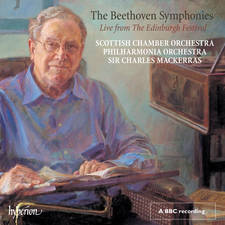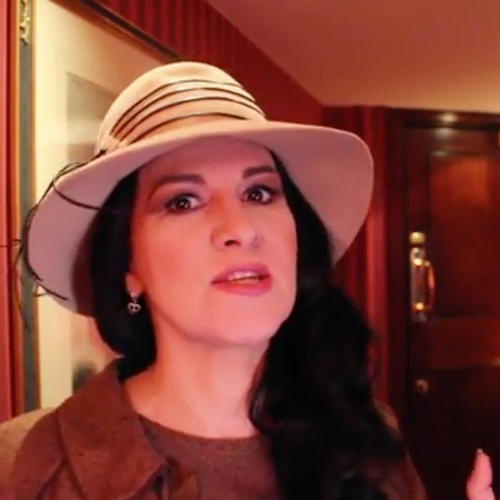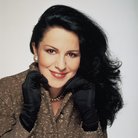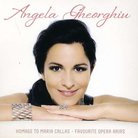The Passion Of Angela Gheorghiu
The classical music world would be a much drabber place without Romanian soprano Angela Gheorghiu. Wherever she appears, this raven-haired beauty with the ravishing voice and imperious manner conjures up the glamour and romance of a 1940s film star.
In her 40s herself, and looking years younger, in a figure-hugging scarlet, quilted coat with a rakish white cap over her luxuriant locks, Angela eclipses the expensive pastel décor of the Beau Rivage Hotel in Geneva.
We’re here to talk about her appearance at Covent Garden as Floria Tosca, a role she tells me was written for another Romanian soprano though it suits Angela’s dramatic style down to the ground.
A palatial suite has been prepared for her visit, with flowers, a towering cake-stand of petits-fours and a tray full of mineral water for her precious vocal cords. Angela’s glittering career has made her accustomed to star treatment, but this private, lakeside hotel, a favourite of Japanese emperors and French film stars, couldn’t be further from the grim industrial town of Adjud, Moldavia, where she grew up during the Communist era. The rags-to-riches story of Angela Gheorghiu is crying out to be made into a blockbuster movie, or even, as she suggests, an opera.
“I’m waiting for a composer to make an opera for me, with a contemporary story, maybe about someone in politics, or art, or music. It could be my story!”
She says she’s joking, but it’s a scriptwriter’s dream: how the pretty little train driver’s daughter with a stunningly mature voice sailed through music schools and the Bucharest Conservatoire during the dark days of the Ceaucescu regime; how she got her first break singing on television in Holland just days after the evil ruler’s fall; how she didn’t bother to audition for smaller opera houses but went straight to Covent Garden, where she was immediately offered a star part – Mimì in La Bohème.
Shrewdly, she decided to make her Royal Opera House debut with something less high-profile – Zerlina in Don Giovanni opposite Bryn Terfel’s Masetto – but she went on to sing Mimì with huge success. Bryn has remained a friend ever since.
The fairytale continued when she fell in love with Roberto Alagna, her gorgeous Italian-French co-star in La Bohème, and they became opera’s most romantic couple. And, in spite of frequent press reports of their split, they are still very much together. They spent Christmas in Bucharest with their extended family: Uana, Angela’s niece, and Ornella, Roberto’s daughter from his first marriage.
“We try to be in the same place, or at least on the same continent, whenever possible,” says Angela. “We’re used to juggling our schedules. Being apart, being together, it’s never boring!”
Covent Garden has a special place in Angela’s heart; whenever possible she likes to sing a new part in a new production in this venerable house.
“That’s why I said yes to my first Tosca on stage. At the Opera House they are all my friends and family – the orchestra, the chorus and of course Tony Pappano. I’ve seen the sets and the costumes. Fingers crossed it’s going to be – wow! The tenor Marcelo Alvarez and the baritone Bryn Terfel – more than this it’s impossible to have. The dream team!”
Angela has already made a movie and a recording of the opera with Roberto Alagna, a performance of such intensity and passion that you can almost feel the heat coming off the CD player. How will it be on stage, with another Cavaradossi?
“It will be different. It must be different. Marcelo and I know each other very well, we are really great friends and he has a very good voice.”
High praise indeed from the exacting Angela. What does she feel about the cuddly Bryn Terfel playing her evil tormentor, the police chief Scarpia? Won’t it be hard to stick a dagger into him?
“Not at all. When we performed the second act at a Metropolitan Opera gala in September, it was absolutely perfect. It was very natural for us!”
The Covent Garden production of Tosca is the first new staging since the Zeffirelli production for Maria Callas.
“The last production was older than me,” says Angela scornfully. “Now, everything is new, and it’s going to be wonderful. The producer, Jonathan Kent, has shown me the costumes, and a maquette of the stage. Every detail we’ve discussed. I don’t like to be surprised. I had a surprise once, and it was a bad one. I don’t want that to happen again.”
Could she be referring to a La Traviata in Madrid, which she pulled out of in 2003 calling it “a vulgar production full of sexual references”? She won’t say. Angela knows what she likes, and it’s a safe bet that the audience will like it too.
She justifies her reputation for being demanding by saying: “I feel responsible for every production. When I’m on stage I want everybody around me, and myself, to be good.”
She has no objections to being described as a diva. “It’s just like saying, ‘You are a woman’ or ‘You are a soprano.’ I am on stage and I’m doing this because I like to be admired. Being called this is the price you have to pay.”
That melting voice with dark depths and an enviable range is as fresh as it was 20 years ago. Being 40 holds no fears for Angela.
“Nothing has changed. In fact I like myself more than when I was 30.”
She is relaxed about what she eats and drinks, but she’s aware of her responsibility to her instrument: “You can get another piano, but Angela’s voice is unique. Two little cords! Two little muscles!”
People say that having a wide throat is the reason for her rich sound, but she thinks it’s more than that. “Everything goes into that sound – your mouth, your way of breathing, even the teeth and nose. Your whole body is involved.”
Angela’s future holds more chances to dazzle. She is singing Carmen and her diary is full. She’s also recording a disc of Mozart arias.
“Nobody expects me to sing Mozart, so for my public, and for me, it will be a nice surprise. He wrote amazing music, and he understands voices. It is bellissima for singers. And his women are very strong characters.”
In the short-term, the family schedule may have to be readjusted now that Roberto has decided to pursue a different kind of repertoire.
“He’s recording French operetta and Cole Porter! I don’t know how that will change our life, because it’s only just happened, and we’ve hardly discussed it.”
Angela admits that she too has dipped her toe into the waters of crossover, recording a pop song by a Romanian composer. She describes it as “sort of rock, sort of pop.”
I want to know if she’s dressed in black leather, like a real rock chick.
“Mais non! I wear blue jeans, then I change into a wonderful, beautiful dress.”
Angela Gheorghiu, high-octane diva – coming soon to MTV!








